Semigration Diaries
The ups and occasional downs of learning how to socialise well in a small town
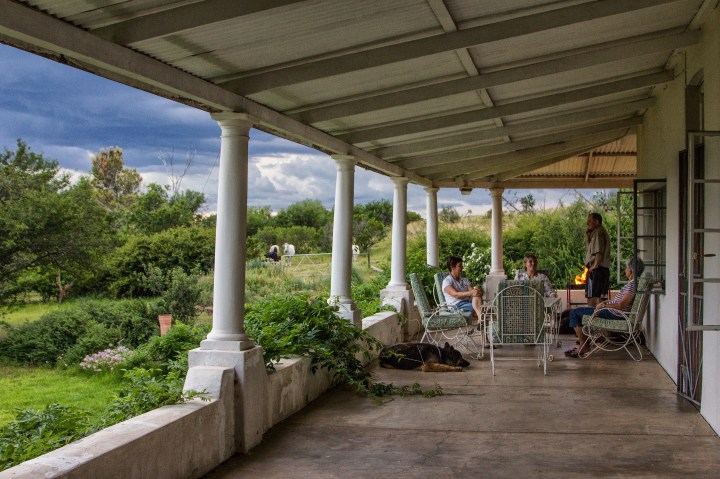
So you’re a fresh incomer to a dorp. What now? How do you socialise with your new tribe?
I joined an informal calisthenics group during our first year in Cradock, back in 2007. A handful of us women gathered twice a week in the old mortuary at the graveyard (now the Round Table Clubhouse) and I vividly remember sweating inelegantly while trying to make sense of the casual conversation swirling around my head.
They all knew each other from school days and chatted in verbal shorthand about mutual friends, juicy gossip and local issues. I was lost.
My new country friends also seemed to speak in a new language, mingling Afrikaans and English at random into a word-slaai of a taal (fondly referred to as Graaffrikaans) that my partner Chris and I later learnt to embrace.
But at first, it was as if we’d tuned into a Martian soap opera. In a small town, there is always a lot going on, and initially, you have no idea who most of the characters are, what the plot line is or how you fit in.
Small town code
So here’s the opening piece of advice, from Lyn Dugmore of Aberdeen: “For the first year of your new life in a town, close your mouth and open your eyes and ears.”
One of the greatest social differences between the city and the platteland is how intensely interconnected life is here. You’ll often encounter families who have been living in your new neighbourhood for centuries, literally. People are intertwined by blood, marriage, schooldays, working relationships, friendships, Bible-study groups, agricultural co-ops and many other bonds that are mostly invisible to you.
Take note that the bank manager’s cousin may be a cashier at the bottle store. The gardener’s wife’s sister might be auditing your accounts. The kind lady at the pharmacy might be married to the very same truck driver who enrages you by starting up his rumbling vehicle opposite your house at an ungodly hour of the morning.
So keep your uncharitable thoughts about others to yourself if you have any, especially for the first year. And then repeat the exercise the following year, and so on.
Read more in Daily Maverick: Moving to a small town: The pitfalls of platteland life
Be kind
Jane Zaayman, who moved from George to marry a Willowmore farmer, advises: “If you’re new in town, be friendly, open-hearted and down to earth. Don’t be patronising or act superior. Plattelanders are warmer and more tolerant than you’d think.
“Plus,” she adds pragmatically, “you can’t afford not to get on with them.”
It’s worth noting that there are few things more life-embittering than feuding with someone in a dorp, in large part because you cannot avoid them. They’ll be frequenting the same shops you do, walking along the same streets, often going to the same church or social gatherings. The same too with their friends or family.
An engaged life
The late René Theron spent most of his life working for the South African Navy as an electrical engineer, building ships overseas and serving in Durban and then Cape Town. One day he visited his sister-in-law in Murraysburg.
“I had long been looking for an escape into the platteland, and as I drove into the town, I felt peace and knew this was it. It was such a contrast to the crush of people and the traffic of Cape Town.”
He bought a lovely old house in Murraysburg and eventually moved there. Then tragedy struck. René was diagnosed with cancer (lymphoma).
But the people of Murraysburg rallied around him, as did his sister-in-law. René (by then known by the entire town as Swaerie — an affectionate name for ‘brother-in-law’) went through chemotherapy which helped to put the cancer in remission, but not before causing havoc with the nerve endings in his legs. He could hardly walk, and so trained his two Spaniel-Labrador crosses Boetie and Sussie to pull him down the quiet streets on his bicycle in the early morning. He survived and lived a happy life, with a slight limp, for many more years in Murraysburg.
René had some advice on how to get on with platteland locals.
“People sometimes come to the Karoo because they have a romantic view of it. Or they think they can finally have some peace and quiet. But after a few months they are lonely because they kept refusing invitations, which eventually stopped arriving. That’s when they move back to the city.
“You need to be engaged. If people invite you to something, no matter what it is, just go. You must be a part of the town. If you get a reputation for being standoffish, then they won’t invite you anymore.”
He made himself useful in Murraysburg.
“I have the gift of skilled hands,” said René. “So I became a Mr Fixit, and I never charged people money.”
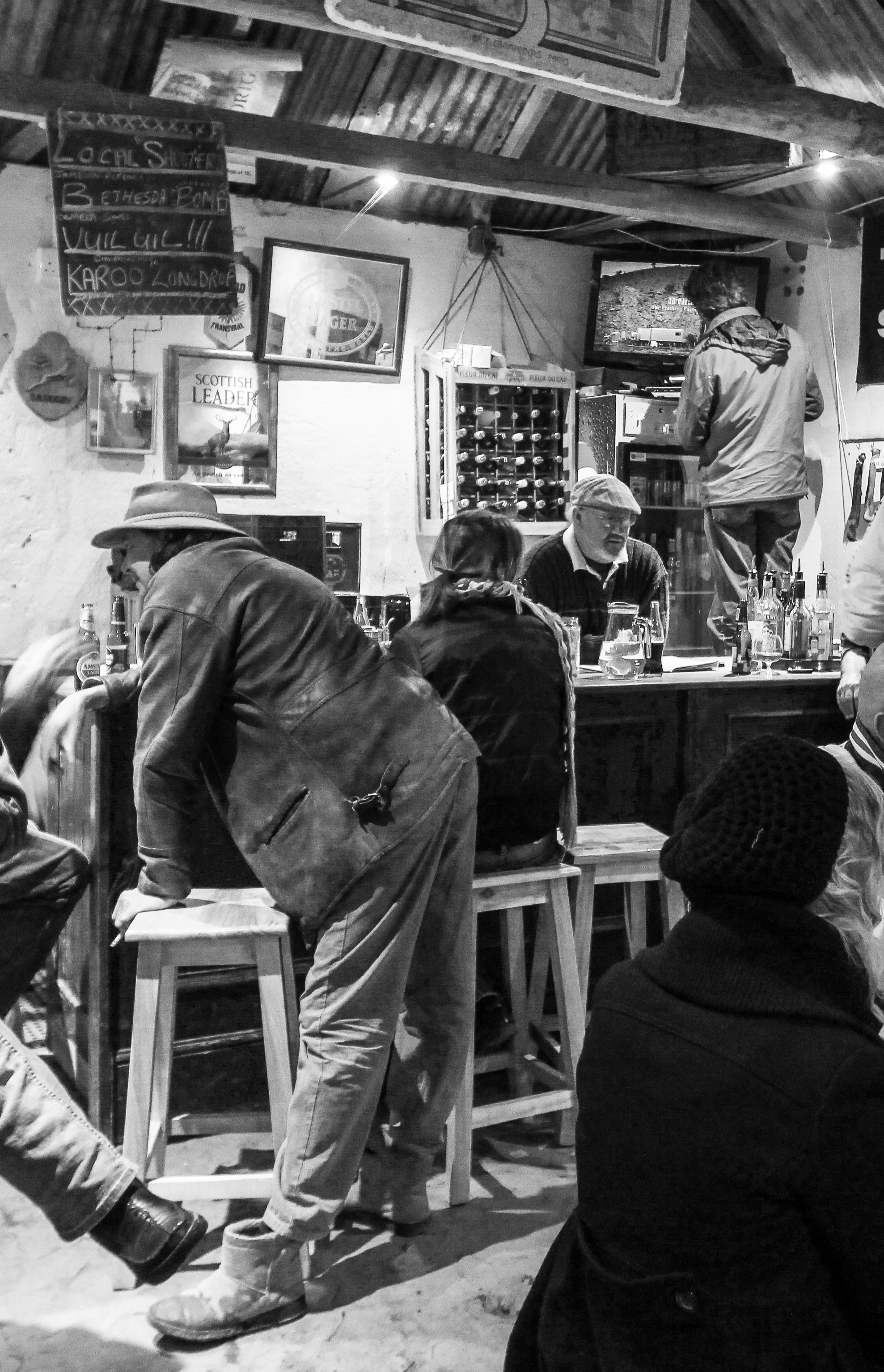
At the local bar in Nieu-Bethesda, with a dozen conversations going on at the same time. (Photo: Chris Marais)
Praat the taal
Jo Prentice and her husband Owen moved from Cape Town to Montagu, after growing to love the Little Karoo over many years.
Here are her tips for settling in:
“In the countryside, learn to smile and greet everyone! This is the first, most crucial choice to make when moving into a Karoo community. It is considered respectful and friendly. Someone taught me the Montagu knik — a little nod of the head in the direction of the person one is greeting, especially when driving a car.
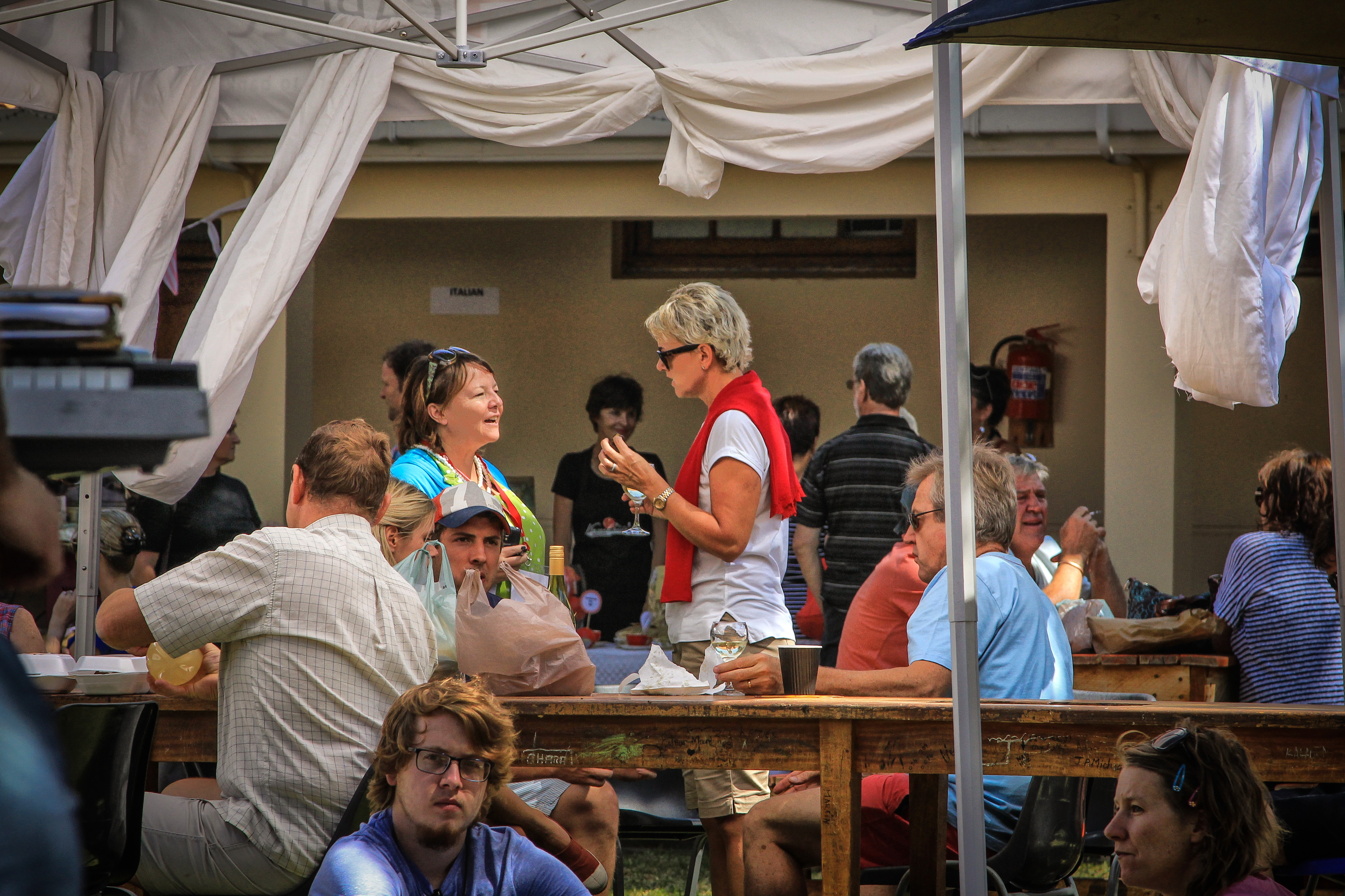
‘If people invite you to something, no matter what it is, just go. You must be a part of the town. If you get a reputation for being standoffish, then they won’t invite you anymore.’ – Oom Rene Theron, who loved his years in Murraysburg. (Photo: Chris Marais)
“Secondly, learn to speak the local language. I had a good understanding of Afrikaans but I seldom spoke it during 58 years of living in Cape Town. Although initially skaam (shy) I persisted and in the process I caused some good laughs.
“Becoming more fluent in Afrikaans helped me meet people throughout the community. My reasoning is this: Why should Afrikaans speakers always switch to English for me? I would like to respect their language and, after all, I am the one who has moved into the area. So now I am increasingly bilingual.
“Thirdly, learn to offer others what you have — produce, skills or transport, for instance. I stand in awe of the generosity of the Montagu community, who seem to share and care all the time.”
‘Going clubbing’ in the country
Depending on the town, there are generally many kinds of social gatherings. In Cradock, there are clubs for tennis, rugby, touch rugby, soccer, cricket, river paddlers, runners, jukskei, golf, bowls, mountain biking, racing pigeon (posduif) fanciers, Bible study, crocheters and knitters, bridge and canasta players, hunters, gardeners, book lovers, musicians, 4×4 and steam train nuts and those who are crazy about eating offal.
There used to be a rather famous Teetotallers Society, but that has mysteriously disappeared without a trace.
Joining a church of your choice is an excellent way to meet like-minded people. Then there are the various agricultural associations, the Vroue Landbou Vereeniging (Women’s Agricultural Union), the Round Tablers, Rotarians, tourism associations and much more.
In unlikely places like Tarkastad and Bethulie, you may also find Zumba or line-dancing groups.
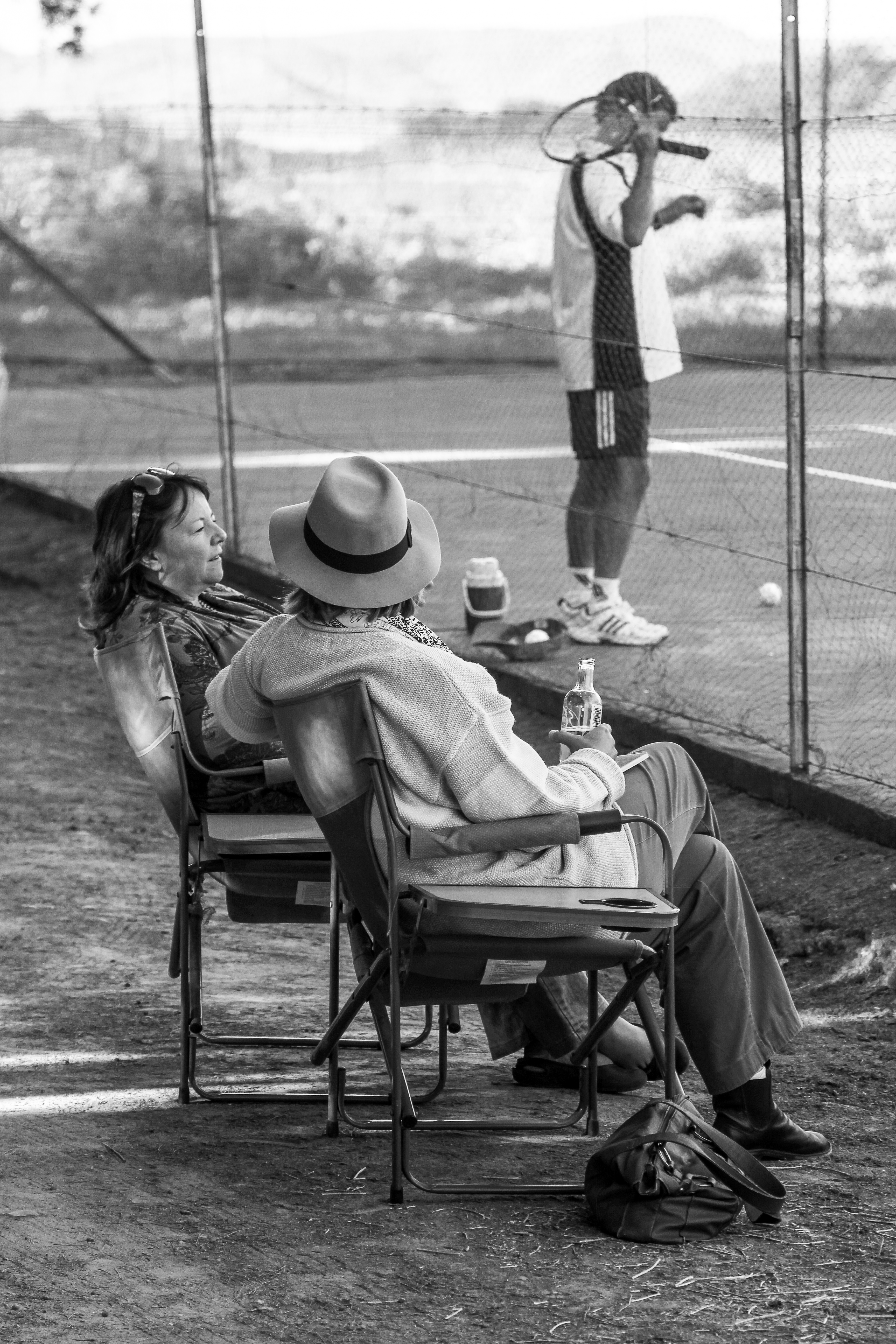
There are so many clubs in small towns, which is where much of the socialising happens. Whether you’re a tennis player, a jukskei aficionado, a pigeon fancier or a studier of Bible texts, there will be a club for it. (Photo: Chris Marais)
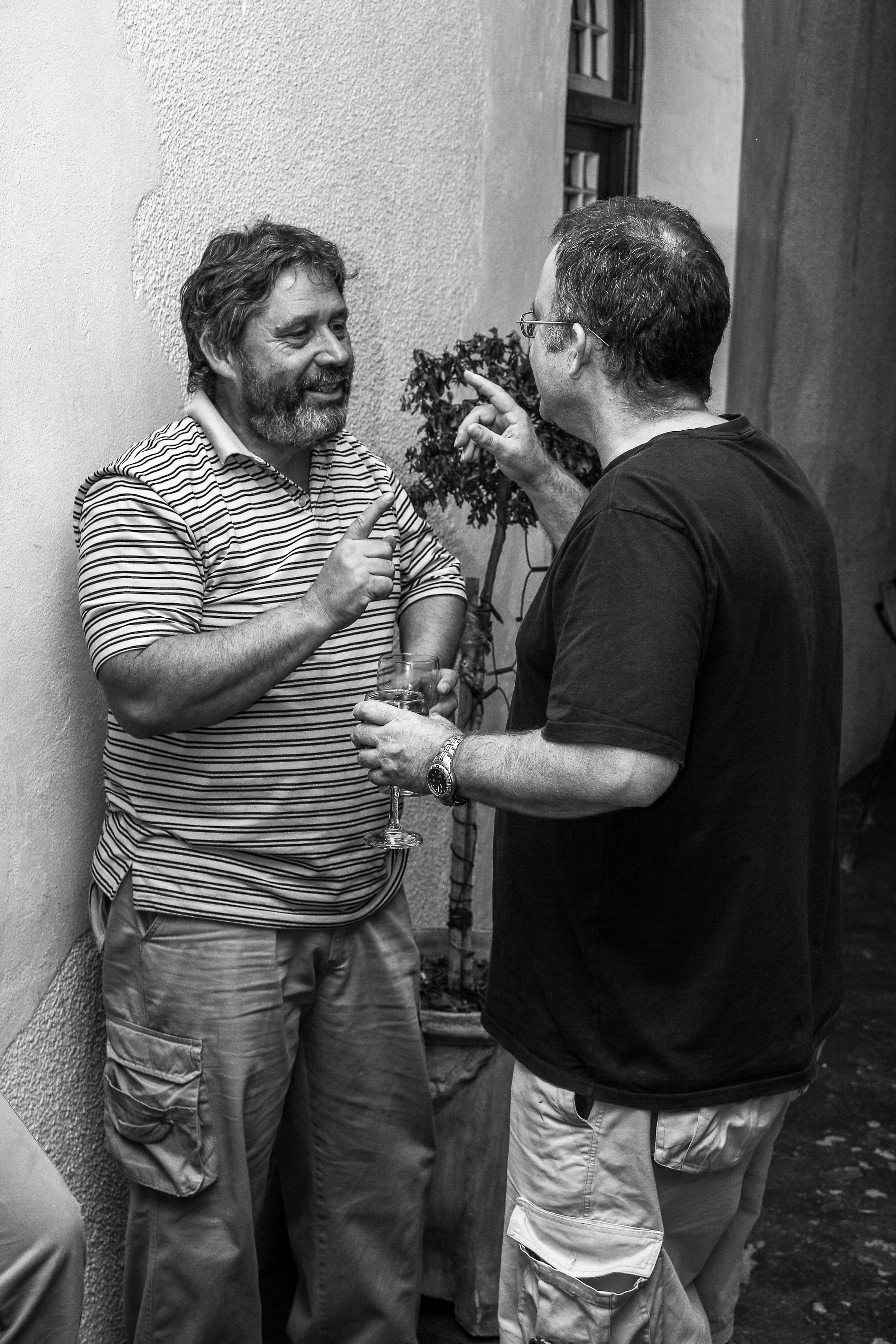
Then there are those impromptu drop-in parties that start with a rooibos tea and end with wine, unrestrained laughter and a rousing song. (Photo: Chris Marais)
Kuiering and stoepsitting
It is wonderful to learn the art of kuiering. In Afrikaans, the word kuier literally means ‘to visit’. But in the platteland, the word carries additional nuances that convey the flavour of a thoroughly enjoyable no-holds-barred natter, an unhurried relishing of company and conversation.
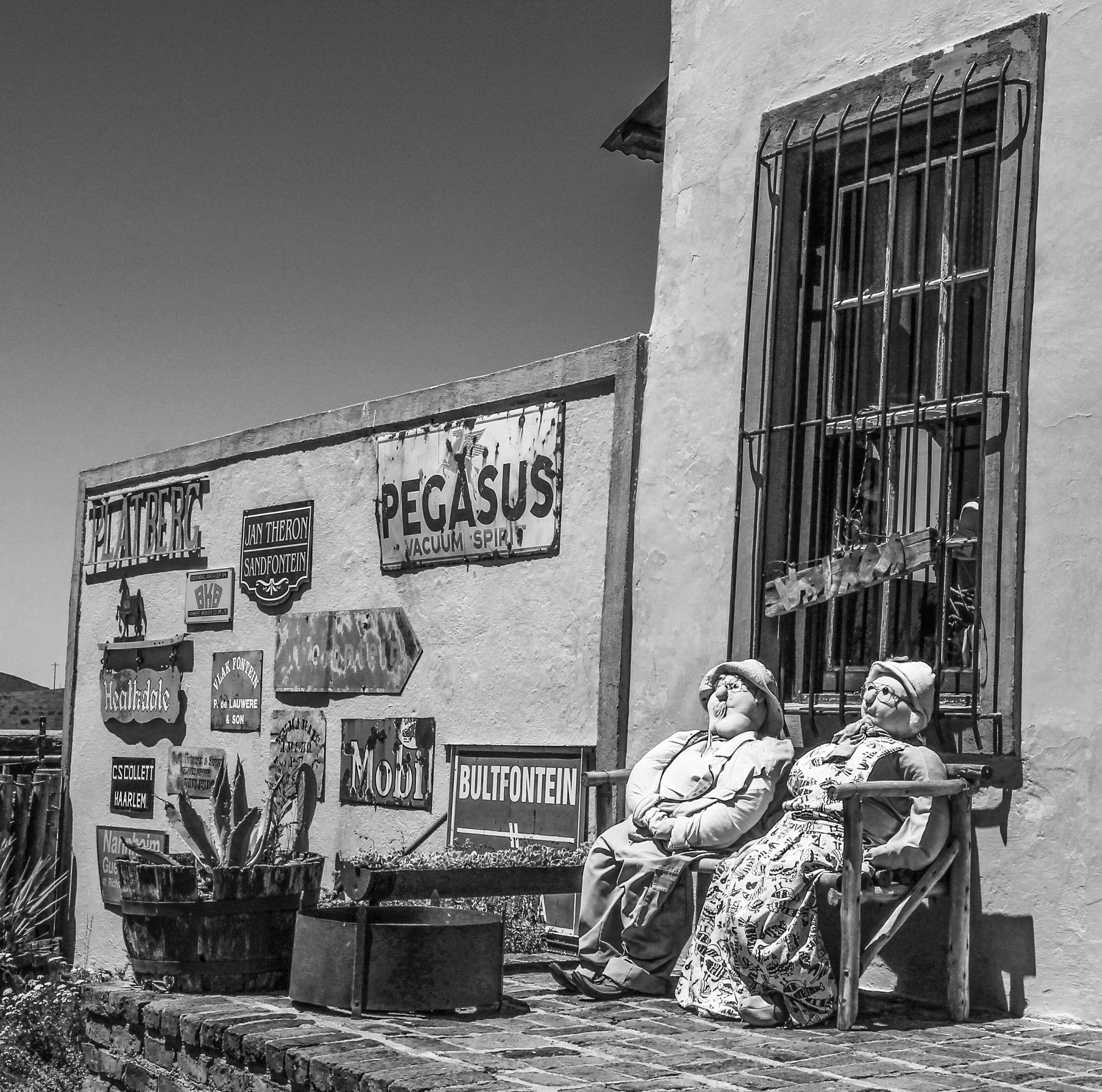
Stoepsitting has become a fine art in the platteland. (Photo: Chris Marais)
Then there are those impromptu drop-in parties that start with a rooibos tea and perhaps a polite half-glass of wine and end with unrestrained laughter and, quite often, a rousing song.
People do go to restaurants but true kuiering generally happens at home. Almost every house has a braai nook with a proper chimney. In windy areas, braaikamers are considered essential.
At a kerkbasaar there might be people who haven’t seen each other for a while settling in for a good kuier over lamribbetjies, pancakes and sosaties.
Kuiering is closely associated with stoep-sitting, which is one of the very best parts of living in the country. Verandahs are the perfect place to contemplate the day ahead with your hands wrapped around a comforting cup of coffee or tea. This is also where you end a hot summer’s day with something cold and clinking.
People like to catch up, which is why a five-minute visit to the shops can take an hour or more.
Once you’ve made friends, socialising in the platteland is generally a very casual thing. There’s no dressing up. Your host may greet you wearing sheepskin slippers. You know you’ve been accepted when you’re invited to eat around the kitchen table, dishing up from pots and dining on the second-best plates.
And remember not to tuck in immediately. In the platteland, they still say grace before a meal, even in restaurants and at kerkbasaars.
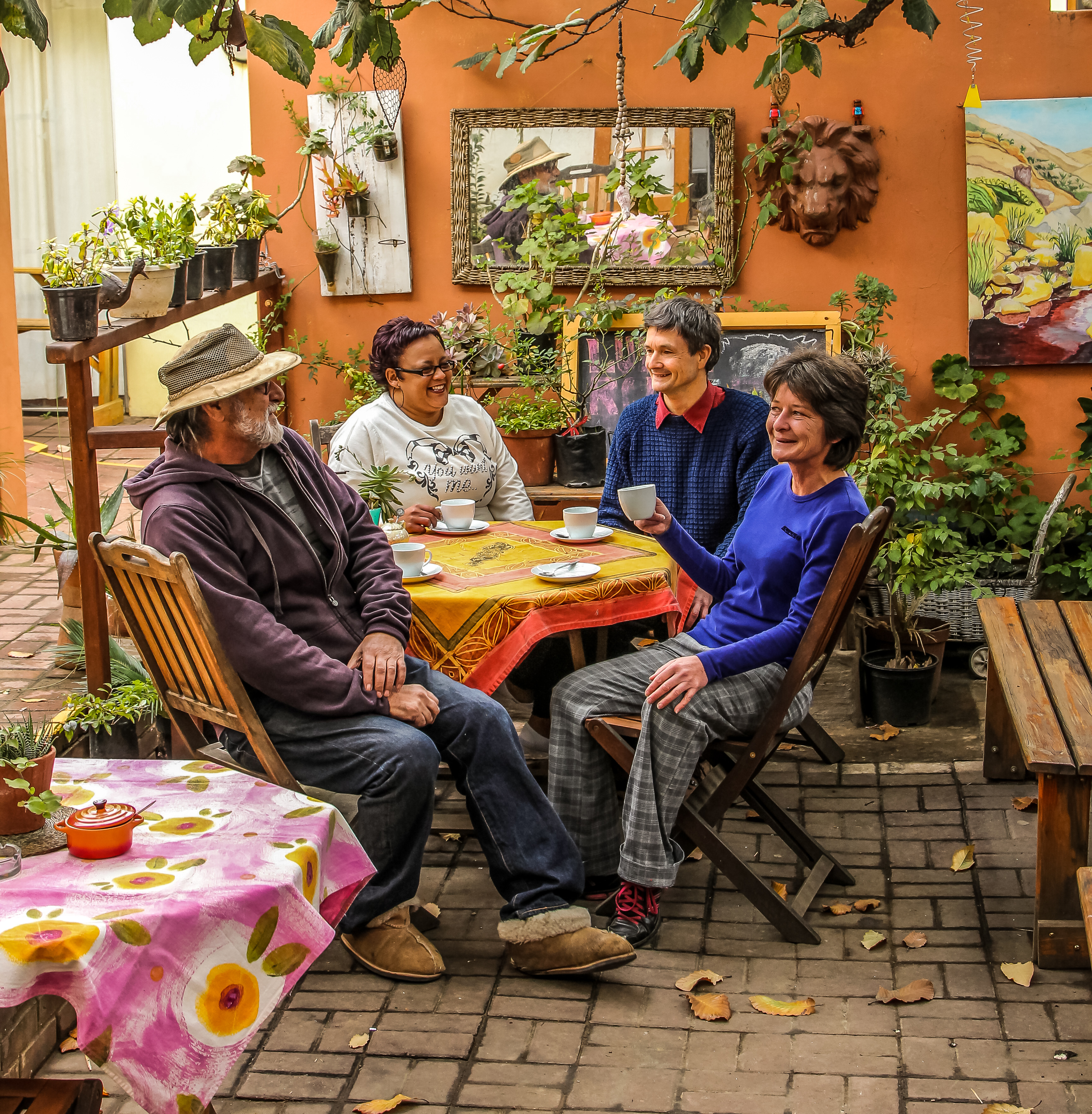
Consider it an honour if your host greets you with sheepskin slippers on his feet, and leads you to the kitchen table, decked with second-best crockery. (Photo: Chris Marais)
The church cushion
A small but important social hazard of dorp life is that in church, people have their favourite seats, and they are appalled if you sit there.
Artist Elsa van Laere, fresh in Williston, took her granddaughter Bianca to church one Sunday. They initially sat at the back, then decided to move forward, not knowing they were now in someone’s favourite pew. The outraged local arrived and stood there, looming over them in the aisle, repeatedly clearing his throat until they shifted over.
Tip: As a newcomer, it’s best to sit down after the first hymn has started, because then everyone else will be seated. And never, ever sit on another person’s church cushion. DM
This is an extract from Moving to the Platteland – Life in Small Town South Africa by Julienne du Toit and Chris Marais. For an insider’s view on semigration and small town life in South Africa, get Moving to the Platteland and Road Tripper Eastern Cape Karoo (illustrated in black and white) by Julienne du Toit and Chris Marais for only R520, including courier costs in South Africa. For more details, contact Julie at [email protected]
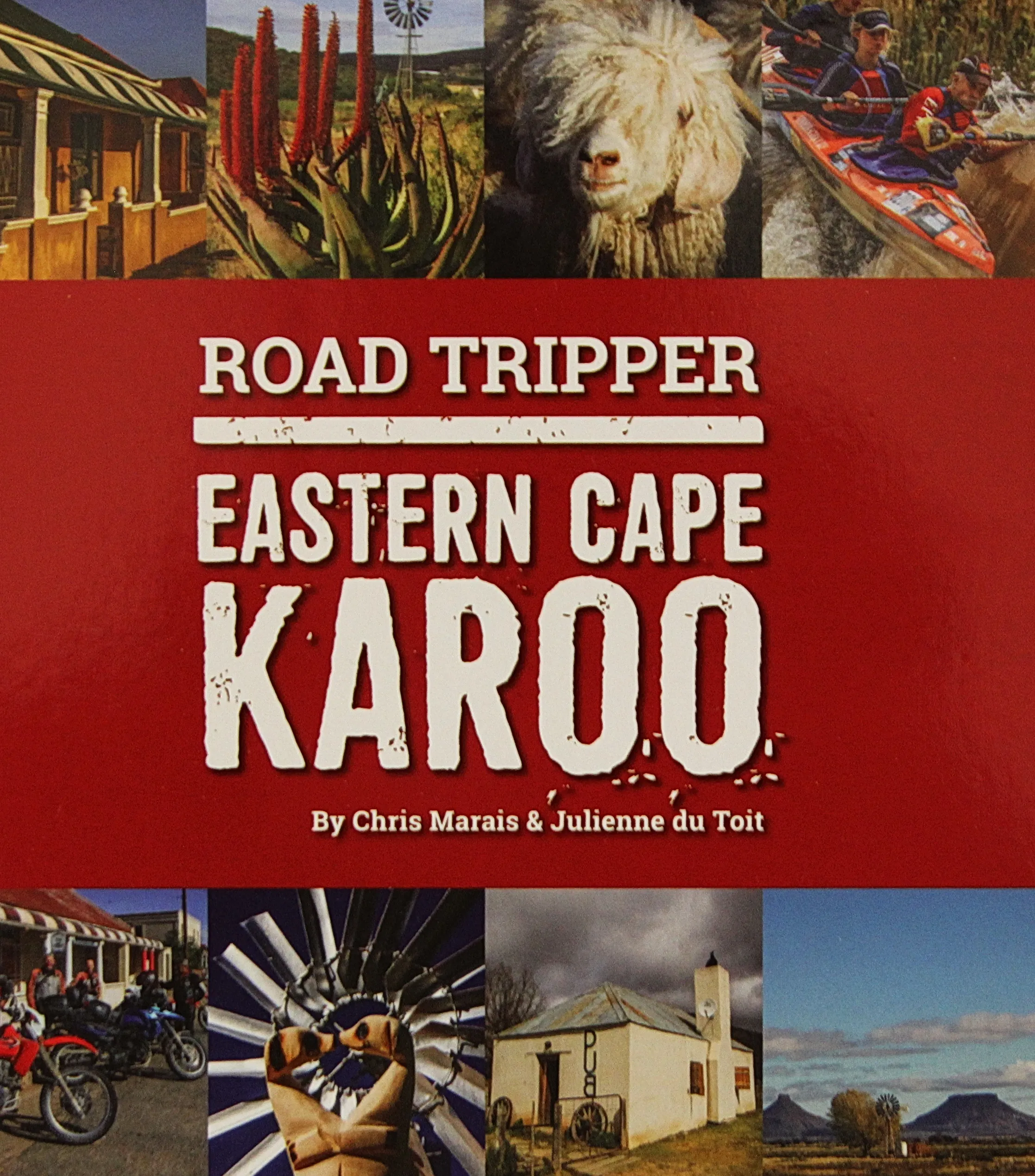
‘Road Tripper: Eastern Cape Karoo’ by Chris Marais and Julienne du Toit.
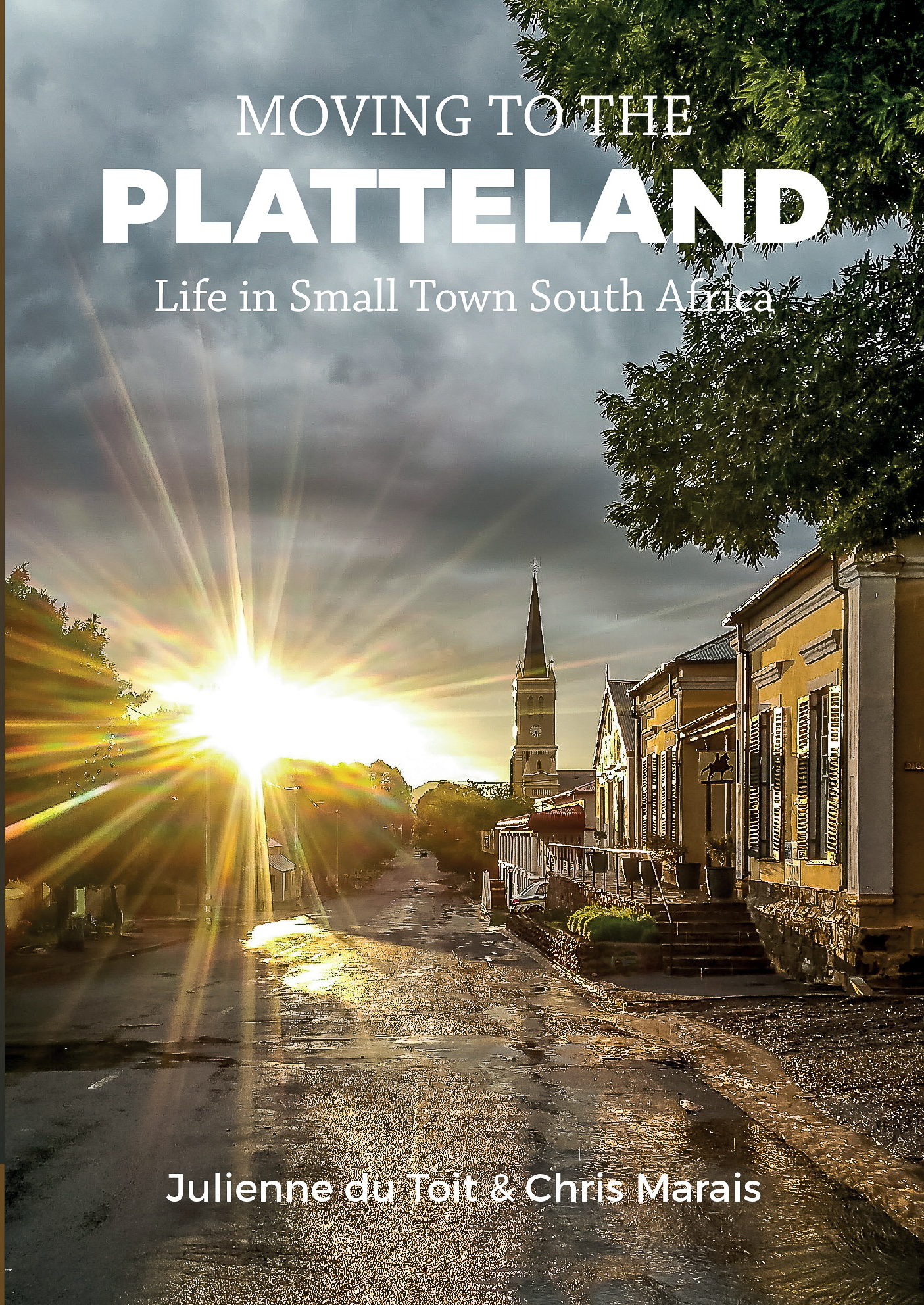
‘Moving to the Platteland: Life in Small Town South Africa’ by Chris Marais and Julienne du Toit.














Good advice – “… keep your mouth closed and your ears and eyes open…”
Yep. After careers which took us around SA, Africa and Europe, my partner bought her parents home on the coast between Augulhas and Hermanus. Her Dad had terminal lung cancer. She added a cottage to the home as both of us believe that families should care for their own parents and not let strangers do it. Her Mom moved into the cottage instead of a frail care facility. I was still commuting between London, West Africa and now SA doing consulting. My partner jacked in her MD of a media company job, based in East Africa, moved to our village and did some consulting work locally. Her Dad introduced her to many characters in the town, but she remained relatively inactive on the social side, but getting to know more people and businesses over time, through her work.
I retired 2 years later and started riding motorbikes again. Through that I hooked up with other bikers and our social life exploded with us getting to know some of the generational families in the district. My partners Afrikaans has come on in leaps and bounds ( we are both originally from Durban and New Germany), my Afrikaans has always been on a par with my home language, English. Truth be known, my first language was Zulu….I used to spend all my school holidays in the W Tvl, where I learned to farm, hunt and the lingua franca was Afrikaans.
What you said is true, accept the invitations, have the kuierkies and become part of the fabric of the town.
Continued/
You know you are accepted when everyone starts greeting you in town, you are called Oom and Tannie a lot of the time ( even some of the bikers call me Oom, or Uncle) and no one bats an eye when you walk into a shop or a pub, barefoot.
I wouldn’t change it for anything….and this is from a guy who worked in some of the biggest cities in the world. We do still travel for holidays around the world.
Cont/
You know you are accepted when everyone starts greeting you in town, you are called Oom and Tannie a lot of the time ( even some of the bikers call me Oom, or Uncle) and no one bats an eye when you walk into a shop or a pub, barefoot.
I wouldn’t change it for anything….and this is from a guy who worked in some of the biggest cities in the world. We do still travel for holidays around the world.
This is absolutely readable value for the mind and soul well done daily maverick.com
One look at these photos will tell you why these people want to move to small dorps. Everyone is white. They could easily have been taken pre-1994, in a country with a man called by his initials of PW or BJ or DF in charge. Everyone goes to church, so no Muslims, Jews, Hindus allowed (in the country clubs, at least). Black South Africans still ‘girls’ and ‘boys’. No alternative lifestyles accepted. Plus ça change. I grew up in a place like this. I would have died if I had stayed. You can keep your kuiering and knik-ing. Thank God for London, with my Saudi Arabian neighbours and my Trinidadian business partner and my British-Pakistani nieces. That’s real life!
Ouch !